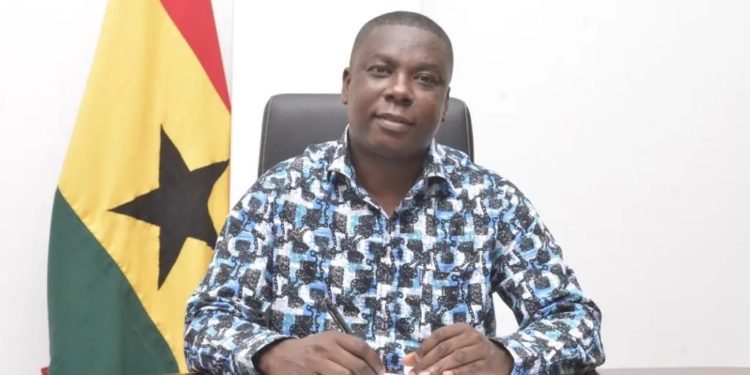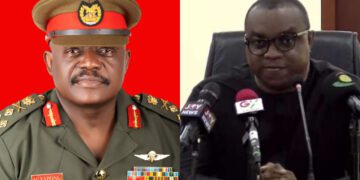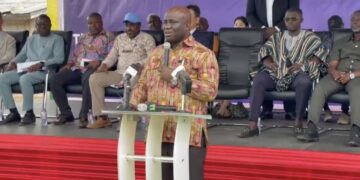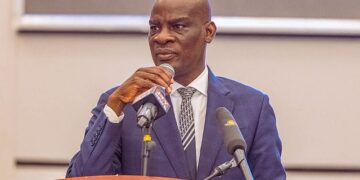Spokesperson of the Vice President, Dr Gideon Boako, has stated that economic indictors do not necessary state how Ghanaians feel in their pockets.
He said the indicators only paint a picture of what is likely to happen to the economy hence, they should not be ignored.
A government may choose to ignore those indicators at its own peril, he said on the First Take Show on 3FM with host Dzifa Bampoh on Tuesday April 12.
Explaining issues raised in the economic address delivered by the Vice President Dr Mahamudu Bawumia on Thursday April 7, Dr Boako said “This is a politician who is speaking like a father and an ordinary person on the street, it doesn’t matter whether it is Covd-19 or it is a Ukrainian war that has caused [the problem], the most important thing is that people are feeling the pinch of it.
“Then he comes to analyzing the situation to see where these things are coming from and what we are doing to address them. As for economic indicators, you may choose to accept them or not, it is not being forced on anyone. But the facts remain the facts, that we will need to paint the picture. Because how much pain you feel may not be the same as how much pain the other person feels. So, how do we then, on average, gauge the sufferings of the people or how the economy is performing? That is why in the wisdom of the scholars they put together indicators that measure how well the geniality of the people are doing.
“It is just like having an average score, an average of three of a set of numbers that comes to three does not mean every number in the set is three, some are two, some are negatives, some are five but the average is three. So, to be able to gauge the average lifestyle, sufferings and wellbeing of the people, that is why these indicators are there.
“You need a certain understanding of the whole system, government cannot take decisions by looking at individual views, you can’t put all views together, there are millions of people so you need to assess the situation. It is just like you to go the hospital to check your wellbeing. There are wellbeing that will tell you about the temperature and your red blood counts. You may decide to ignore them but you ignore them at your onw peril because they are the indicators that tell us about what is happening in your system.
“If you are driving and you see on your dashboard something is red, something is not right, you decide to ignore the indicators that you see at your own peril, because it is what is telling you that your brake is proper or not, then you go and see how you will diagnose it and work on them. So, those are economic indicators, they do not necessarily reflect what individuals are feeling in their pockets.”
“Those indictors at the only metrics by which you can measure to see whether we were better yesterday than today,” he stressed.
During the economic address, Dr Bawumia said recognized that Ghanaians are saddled with economic challenges but attributed the problems to the Covid-19 situation and also the ongoing Russia-Ukraine war.
He said Ghana is directly affected by the war.
He said “The issues about national economies and how well individual countries are handling their respective economic situations appear to be the most important thing on people’s minds in recent times. From the man on the street to the business mogul, the food we eat, the clothes we wear, the shelter we seek or have, to the benevolence we extend to friends and family, the health of the economy is the foundational instrument. To bring this home, essentially the economy is what we feel in our pockets. I acknowledge that we are going through challenging time. This is the reality irrespective of the cause.
“Not long ago, we had felt similar despair. The fear of losing our lives to a pandemic and the near halt to our economy as we battled to survive each day. Some years ago also we had been confronted by very dire economic circumstances. The joblessness of our youth, years of lights out that adversely impacted on businesses and jobs, the disappointment of dealing with a collapsed national health insurance system
and inability to access health care, the bane of the cash and carry system, a nearly collapsed national ambulance system, freeze on public sector employment, an almost collapsed banking sector and so on.
“The economy was on the verge of collapse and a legacy of take or pay contracts saddled our economy with annual excess capacity charges of close to $1 billion. These were basically contracts to supply energy to Ghana way in excess of our requirements, but we were obligated to pay for the power whether we use it or not. We were confronted with a banking crisis. Not dealing decisively with it would have meant disaster for the economy as the entire banking system would have collapsed.
“In addition, not keeping up with the excess capacity payments would have meant throwing the country back into a new bout of dumsor. The government of President Nana Addo Dankwa AkufoAddo put in a lot of effort to turn things around from what the situation was used to be at the time we came into office in 2017. We had only one mission: Stop the decline and make things better.”


















